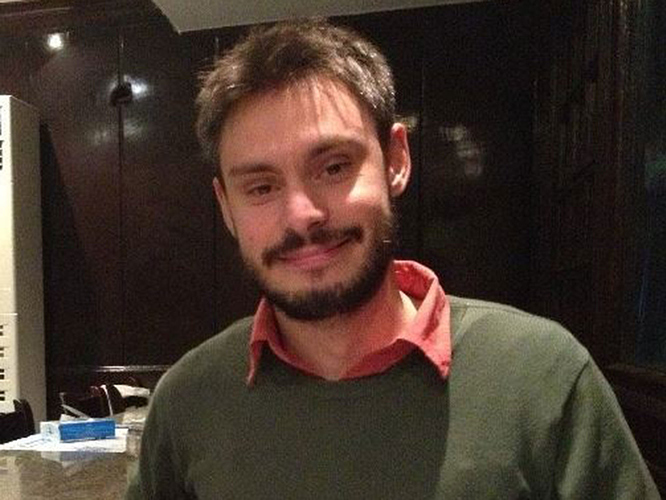A message from the Vice-Chancellor to the academic community, January 16, 2018 (originally published at cam.ac.uk).
"It has been almost two years since the murder of Giulio Regeni, a Cambridge student, in Cairo. As we approach this anniversary, we are no nearer to knowing the truth of what happened to this promising post-graduate, tortured and killed while pursuing wholly legitimate academic research. Once again, we recognise the deep pain experienced by Giulio’s family, which nothing can relieve.
In our community, the sense of hurt and outrage has not abated. His murder was an affront to all of us. It remains an affront to the values of openness, freedom of thought and freedom of academic enquiry that our University stands for. The heinous manner of Giulio’s death has diminished us all.
It has been especially troubling to note that, in the absence of apparent progress in investigations into Giulio’s death, attention has been turned to his doctoral supervisor, Dr Maha Abdelrahman – an honourable and distinguished scholar.
An investigation led by Italian authorities, with the help of Cambridgeshire police, is underway. As Giulio’s supervisor, Dr Abdelrahman is a witness in this investigation, and has cooperated fully.
It is very disturbing, therefore, to find that she has been the victim of seemingly concerted efforts to implicate her directly in Giulio’s death.
Public speculation about Dr Abdelrahman’s involvement in the case has been inaccurate, damaging and potentially dangerous. It stems from a fundamental misapprehension about the nature of academic research. It demonstrates a lack of understanding of scholarly aims and methods. It shows a failure to understand the intellectual relationship between a PhD student and his or her supervisor.
It is not uncommon for academic research in the humanities and social sciences to impinge on politically sensitive issues. Giulio was an experienced researcher, who had already spent time in Egypt, and was a fluent Arabic speaker. He was using standard academic methods to study trade unions in Egypt.
Since Giulio’s death was confirmed in February 2016, Dr Abdelrahman and the University of Cambridge have repeatedly expressed their willingness to cooperate with the investigation. Last week, Dr Abdelrahman welcomed the opportunity to speak again to Italian investigators in Cambridge – the third time she has answered their questions – and voluntarily handed over material requested by them.
In light of her willingness to assist, the public campaign of denigration, fanned by political expediency, is shameful.
The University has sought all opportunities – public and private, formal and informal – to push for progress in the investigation into Giulio’s death. It has urged Egyptian, Italian and British authorities to pursue all avenues of investigation to arrive at the truth.
Throughout, the University has been respectful of legal constraints (including on the ability to comment publicly) posed by the continuing legal process. It has been particularly disappointing, then, to see that the same restraint has not applied in other domains, where the confidentiality of the legal process has been blatantly ignored.
The University will of course continue to assist authorities as they seek justice for Giulio and his family. It will also defend the right of academics to engage in legitimate and lawful research, wherever they wish to do so.
As well as doing everything it can to ensure that the death of one of its students is redressed, the University of Cambridge is committed to ensuring that the reputation and wellbeing of its scholars are always safeguarded.
This brutal killing calls for justice. But justice will not be served by undermining the very thing that drove Giulio in his brief but inspiring academic career – the search for truth."
Stephen J Toope, Vice-Chancellor
Image of Giulio Regeni via The Independent.
